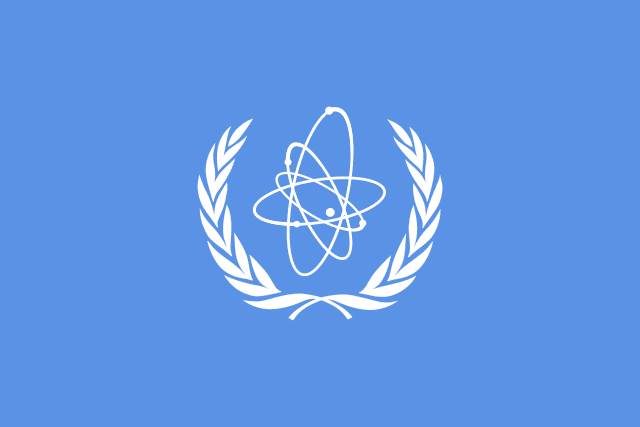Post-Iran deal, the US needs a plan to keep nuclear weapons from spreading
By Ariane Tabatabai, Martin Rioux-Lefebvre | May 11, 2018

On May 8, President Donald Trump announced that he was pulling the United States out of the nuclear deal with Iran, known as the Joint Comprehensive Plan of Action (JCPOA). Just hours later, Saudi Foreign Minister Adel al-Jubeir told CNN that his country would “do whatever it takes to protect our people. We have made it very clear that if Iran acquires a nuclear capability we will do everything we can to do the same.” And when a reporter asked White House Press Secretary Sarah Huckabee Sanders to outline her administration’s response to this statement, the secretary’s response marked a departure from decades of US nonproliferation policy and commitment to the 1968 Treaty on the Non-Proliferation on Nuclear Weapons (NPT). “Right now,” Sanders said, “I don’t know that we have a specific policy announcement on that front, but I can tell you that we are very committed to making sure that Iran does not have nuclear weapons.”
The administration’s seeming abdication of its traditional leadership role on nonproliferation comes just weeks before President Trump is scheduled to meet with North Korea’s dictator, Kim Jong-un. Although the United States is no longer part of the JCPOA, nonproliferation remains a key strategic interest for America and critical to international peace and security. As such, the Trump administration needs to have a coherent nonproliferation policy, to reiterate its commitment to the NPT, and to strengthen its supporting institutions, particularly the International Atomic Energy Agency (IAEA).
What’s at stake. The administration’s withdrawal from the JCPOA is a blow to multilateralism and nonproliferation. But a nonproliferation policy perceived as incoherent is even more damaging to US credibility and the nonproliferation regime. Indeed, some non-nuclear weapon states under the NPT have long seen the nuclear weapon states, including the United States, as biased and selective in their implementation of the treaty, prioritizing the provisions that bar non-nuclear-weapon states from acquiring the atomic bomb, while failing to implement disarmament clauses in good faith. But a declared policy differentiating between non-nuclear weapon states based on their relationship with America can only further alienate them and reinforce the idea that American nonproliferation commitments and objectives are subject to change, based on the administration’s view of countries at any point in time. This, in turn, undermines the nonproliferation regime.
With the US withdrawal from the JCPOA a done deal, the United States should now maintain a coherent nonproliferation policy in the Middle East and beyond to limit the damage to nuclear nonproliferation efforts. Here are three steps the United States could take to strengthen nonproliferation post-withdrawal from the JCPOA.
Step 1: Reiterate support for the NPT. It’s possible that the press secretary was caught off guard by the question regarding US policy vis-à-vis al-Jubeir’s statement and provided an inadequate response. But the United States has long had a clear policy on the proliferation of nuclear weapons to non-nuclear weapon states, centered around a legal obligation to oppose it, as embodied by the NPT. Article II of the treaty prohibits “each non-nuclear-weapon State Party” (which includes Saudi Arabia and Iran) from building or acquiring nuclear weapons. It also bans these countries from receiving assistance in the development of these weapons. For their part, nuclear weapon states, including the United States, are obliged under Article I not to “assist, encourage, or induce any non-nuclear-weapon State to manufacture or otherwise acquire nuclear weapons.”
These two articles are the cornerstones of the nonproliferation regime, which has been instrumental in keeping a lid on the number of new nuclear-armed states, limiting them to nine only. And America has supported these efforts for the past half-century. To maintain a coherent nonproliferation policy, in the Middle East and globally, the United States should reaffirm its support for the NPT. Failing to do so would not only send the wrong signal to Saudi Arabia and Iran, but also to North Korea, whose leader will meet with President Trump on June 12. Pyongyang left the NPT under article X in 2003 in the context of the collapse of the 1994 Agreed Framework and has since developed a nuclear arsenal which President Trump hopes to roll back.
Step 2: Continue to support the IAEA and its inspection regime. With or without the JCPOA, the IAEA will continue to monitor Iran’s nuclear program in accordance with the country’s NPT obligations and Comprehensive Safeguards Agreement. However, without the nuclear deal, the international community would lose some of these monitoring and verification privileges. As part of the JCPOA, Iran must seek ratification of the Additional Protocol (AP) to its Safeguards Agreement through its legislature, making the increased access permanent. But if the rest of the parties aren’t able to preserve the deal without Washington, Tehran is likely to stop adhering to the AP, thus placing limits on IAEA inspectors’ access to key information and facilities. Iran will also likely cease to accept the additional nuclear-related commitments contained in the JCPOA and verified by the IAEA, which include access to centrifuge assembly workshops, for example, which would otherwise not be monitored by the IAEA.
The United States should back the IAEA’s work and ability to monitor the Iranian nuclear program by committing important political and financial support to the agency. This will ensure continued verification of Iranian nuclear activities and JCPOA implementation (if Iran and the Europeans reach an agreement to preserve it, despite US withdrawal). At the same time, the United States must be consistent in its nonproliferation policy and avoid double-standards in the Middle East by also asking Saudi Arabia to ratify the AP as part of US nuclear engagement with the kingdom.
Step 3: Negotiate a “gold standard” agreement with Saudi Arabia. For more than a decade, Saudi Arabia has planned to develop its civil nuclear power industry. As part of this effort, the kingdom has announced plans to build at least 16 large nuclear reactors by 2040 while also considering a number of small modular reactors. In a post-Fukushima environment, where the credibility of the nuclear industry has been seriously damaged and global nuclear energy companies face severe financial difficulties (an industry giant, Westinghouse, declared bankruptcy last year), the prospect of obtaining Saudi contracts is extremely appealing, if not vital, for the world’s leading nuclear suppliers. At the same time, ever since Riyadh announced plans to build nuclear power plants, some experts have warned that the move makes little economic sense for the oil-rich nation, arguing that the plans are designed to allow the country to become a nuclear threshold state and hedge against Iran’s nuclear program.
The Trump administration is currently negotiating a “123 agreement” to allow the export of nuclear technology to Saudi Arabia. Such agreements are named after section 123 of the US Atomic Energy Act of 1954 and facilitate the transfer of American nuclear technology to other states. When the United Arab Emirates signed a 123 agreement in 2009, it promised not to enrich uranium or reprocess spent fuel, creating a “gold standard” for such agreements. However, the Saudis have made it clear that they want to enrich uranium and wouldn’t accept the gold standard. In the context of an American nuclear industry desperate to get a share of the Saudi contract potentially worth tens of billions of dollars, all signs point to the United States accepting a bronze standard for the deal with Saudi Arabia.
Suppliers can serve as a check on nations’ nuclear programs. As a result, the United States can be a player in Saudi Arabia’s nuclear development and help ensure that it’s not using the sensitive technology and knowhow it’s getting to dash toward a bomb. In this context, the gold standard may be a lost cause, but it’s crucial that the United States insists on strong Saudi nonproliferation commitments as part of a 123 agreement. For example, when concluding such a deal with Vietnam in 2014, the United States accepted a non-binding commitment from Vietnam that the country had no intention to pursue enrichment. Washington should at the least demand the same commitment from Riyadh and ask that it signs and ratifies the AP. The United States could also consider legally binding commitments from Saudi Arabia, of fixed duration, that the kingdom would not pursue sensitive nuclear fuel cycle capabilities.
At the height of the Cold War, many assumed that nuclear proliferation was inevitable and that dozens of states would possess a nuclear weapon by the end of 20th century. Yet, decades later, only nine have acquired the bomb. This is largely thanks to the nonproliferation regime, of which the United States has been a champion since the beginning. The Trump administration’s withdrawal from the JCPOA is a significant step back for the nonproliferation regime. The president pulled the United States out of a multilateral process that had brought a noncompliant state back into compliance through diplomacy and created the most intrusive monitoring and verification regime agreed to by any state yet. Failure now to promote a coherent nonproliferation policy can hurt America’s standing in the world and lead to the proliferation of nuclear weapons in key strategic regions.
The upcoming June 12 summit in Singapore between President Trump and Kim Jong-un is a positive development. The Trump administration deserves credit for engaging in dialogue with a longtime adversary. To further strengthen America’s hand in the talks, the administration must take these three critical steps to signal to friends and foes that nonproliferation commitments aren’t a bargaining chip.
Together, we make the world safer.
The Bulletin elevates expert voices above the noise. But as an independent nonprofit organization, our operations depend on the support of readers like you. Help us continue to deliver quality journalism that holds leaders accountable. Your support of our work at any level is important. In return, we promise our coverage will be understandable, influential, vigilant, solution-oriented, and fair-minded. Together we can make a difference.
Topics: Columnists















